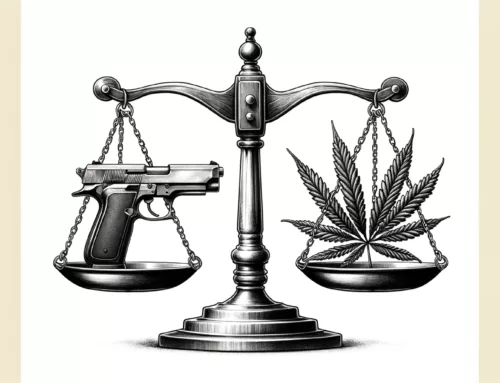The “Safety Valve” in Federal Sentencing
If you or a loved one are a defendant facing drug charges in Florida that carry harsh mandatory minimum sentences, you may be feeling scared, overwhelmed, and confused about what comes next. If your case gets to a sentencing hearing, will the judge really have to lock you up for years or decades, no matter the circumstances? Is there any way out?
As an experienced Miami drug crimes defense attorney, I know that mandatory minimums take away judges’ discretion to consider an individual defendant’s factors and issue fair sentences. But there is one limited exception—the safety valve in federal sentencing—that can be a lifeline for some first-time, low-level drug offenders in Florida.
In this post, written specifically for average people facing federal drug charges in Florida, I’ll explain exactly how the federal safety valve works in federal drug case sentencing so you understand your options. My goal is to arm you with the knowledge you need to make the best decisions in your case. According to the United States Sentencing Commission, mandatory minimum sentencing laws are one of the most controversial features of the federal sentencing system.
What Are Mandatory Minimum Sentences in Federal Drug Cases?
Mandatory minimum sentences are required punishments that judges must impose for certain federal crimes, primarily drug offenses. They commonly apply in Florida under federal law for charges like:
- Cocaine, heroin, fentanyl, and meth trafficking offenses
- Marijuana distribution offenses
- Prescription pill diversion offenses
- Drug conspiracy offenses
Judges hate mandatory minimums because they take away the traditional discretion to tailor sentences based on specific circumstances. With mandatory minimums, everyone from major traffickers to girlfriends doing “favors” faces the same rigid punishments at sentencing. For example, even if you played a very minor role like doing errands or accounting, you’d still face the mandatory decade-long sentence for trafficking over 5 kilos of cocaine. The sentencing court has no power to go lower based on your limited involvement.
What is the Federal Safety Valve Exception?
To prevent the least culpable offenders from serving the ultra-harsh drug war-era mandatory sentences, Congress created the federal “safety valve” exception in 1994. See 18 USC § 3553(f)(1)-(5).
The safety valve provision allows federal judges to sentence certain low-level, nonviolent drug offenders below the mandatory minimum and within the United States Sentencing Guidelines. But it only applies if you meet all five requirements:
- Minimal Criminal History: You must have no more than four criminal history points under the federal sentencing guidelines. If you have prior felonies or violent offenses, you are disqualified.
- Nonviolent Offense: You didn’t use any violence or threats, possess a weapon, or direct anyone else to do so. Just being present while others had guns will likely disqualify you.
- Limited Role: You were not an organizer, leader, manager, or supervisor in the drug offense. You must prove you were low-level.
- No Injuries or Death: No one was seriously hurt or killed as a result of the offense. Minor injuries to you won’t necessarily exempt you.
- Truthful Cooperation: You provided completely truthful information to the prosecution about the offense and your own activities. Lying at any point may ruin your eligibility.
As you can see, the requirements are quite stringent. But if you meet all five criteria, the federal judge can sentence you within the United States Sentencing Guidelines and below the mandatory minimum prison term.
Another benefit if you qualify for the safety valve is it can also lower your total offense level and recommended sentencing range under the advisory guidelines. Though no longer mandatory, the guidelines remain influential in a federal judge’s sentencing decisions. Qualifying for the safety valve subtracts two points from this total calculation. Reducing the offense level even slightly can mean substantially less prison time in the end. So the two-point safety valve reduction provides a measurable benefit by dropping the guideline range.
Why Criminal Defense Attorneys Hate Mandatory Minimum Sentencing
As a criminal defense attorney, I hate seeing a mandatory minimum sentence applied unjustly to one of my clients. Here are some examples of why they are so problematic:
- They punish small role players like drivers and couriers the same as major traffickers.
- Old priors from your youth can forever prevent safety valve relief.
- First-time, nonviolent offenders face sentences intended for seasoned gangsters.
- Informants who cooperate get far lower sentences than equally culpable defendants who plead the Fifth.
- They give all discretion to prosecutors, not impartial judges.
- Minorities tend to face more enhancement charges that preclude safety valve relief.
- There is often pressure on defendants to fabricate information or falsely cooperate to qualify for the safety valve.
As you can see, mandatory minimums contribute to many systemic issues: mass incarceration, inverted sentencing, inequality, and false testimony. They deserve much criticism but remain the federal sentencing law.
Changes in the Safety Valve Due to the First Step Act
The First Step Act made changes that allow more people charged with drug crimes to qualify for the safety valve. Before the law changed, only defendants with little or no criminal history could qualify. This meant people with more significant criminal histories didn’t qualify, even if they played small roles in drug operations.
The First Step Act now allows judges to give shorter sentences to some defendants who have more extensive criminal histories. This expands the number of people who can benefit from the safety valve.
The law also newly allows shorter sentences for people charged with drug crimes on boats, including foreign ships. In the past, these maritime drug cases were completely excluded from getting safety valve sentencing discounts. Now those defendants can qualify too.
By loosening the strict criminal history and maritime restrictions, the First Step Act opens up shorter sentences to more low-level drug offenders. The bipartisan reform made modest but important changes to extend fairness in safety valve applications.
Should the Safety Valve Be Expanded?
While an important counterbalance to mandatory minimums, the safety valve has significant limitations. That’s why various criminal justice reform groups advocate expanding the safety valve, including:
- Applying safety valve relief beyond just drug cases to other federal crimes with mandatory minimums.
- Relaxing rigid criminal history requirements that disqualify people for old convictions.
- Giving judges more discretion without requiring prosecutors to approve defendants’ cooperation.
- Allowing consideration of mitigating factors like motive, likelihood of recidivism, and the defendant’s health or family circumstances.
Bottom line – the safety valve marks progress, but more reforms are still needed to restore appropriate judicial discretion over federal mandatory drug sentencing, according to a United States Sentencing Commission policy statement.
Don’t Go Through This Alone – Contact My Florida Defense Firm Today
I hope this post helped explain what you’re facing with federal mandatory drug sentences and the limited relief offered by the safety valve. But please know you don’t have to go through this alone. My firm has successfully represented many defendants just like you. I encourage you to contact us today for a free case evaluation. An experienced federal drug crimes lawyer can answer all your questions and start building the strongest defense for your unique circumstances. We will also investigate safety valve eligibility and any other avenues to mitigate your punishment.
Don’t leave your fate up to rigid mandatory minimums and unpredictable prosecutors. With an aggressive defense strategy and negotiations leveraging every option, we can give you the best chance at a just outcome. Call now or contact us online to get started.
CALL US NOW for a CONFIDENTIAL INITIAL CONSULTATION at (305) 538-4545, or take a moment to fill out our confidential and secure intake form.* The additional details you provide will greatly assist us in responding to your inquiry.
THERE ARE THOUSANDS OF LAW FIRMS AND ATTORNEYS IN SOUTH FLORIDA. ALWAYS INVESTIGATE A LAWYER’S QUALIFICATIONS AND EXPERIENCE BEFORE MAKING A DECISION ON HIRING A CRIMINAL DEFENSE ATTORNEY ATTORNEY FOR YOUR MIAMI-DADE COUNTY CASE









